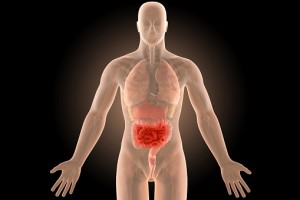I Never Have Hunger Pangs. Here’s Why
Most of us have experienced those moments where you’ve had to work late or didn’t have time to grab lunch, and all of a sudden it feels like your stomach is going to eat itself if you don’t get food — fast. These feelings of starvation can ruin your focus, make you cranky and lead to constant snacking or binge eating.
This is a common problem, but it can be solved pretty easily. Intense hunger used to be something that I dealt with regularly. However after making a few dietary and lifestyle changes, I never suffer hunger pangs. Here are some ways that I beat hunger and feel more satiated, and I hope they work for you:
1. Get more sleep.
It turns out that lack of sleep may actually affect our appetite. There has been a growing amount of evidence showing that lack of sleep seems to affect the hormones in charge of our appetite, ghrelin and leptin. This means that if you were to simply get around seven to eight hours of sleep a night, the intensity and frequency of your hunger pangs could be reduced.
2. Skip breakfast.
This may seem counterintuitive, but skipping breakfast (otherwise known as intermittent fasting) helps me control my hunger pangs. During the night our bodies enter into a fasted state where its burning calories by utilizing its own body fat for energy. Our bodies will remain in this state until we eat our first meal, so we are still getting the energy we need without actually consuming any food. Eventually our bodies will adapt to this routine of not eating in the mornings and you’ll develop superior appetite control.
3. Avoid carbohydrates and sugar for the first half of the day.
When we start our days off with a meal high in carbohydrates and sugar, like oatmeal or cereal, we are training our bodies to be dependent on glucose for energy. When the glucose runs out, we become hungry and hunger pangs set in.
If you were to simply move your carbohydrate and sugar consumption to later in the day, and replace the morning calories with healthy fats and protein, like avocados or eggs, you will notice a dramatic reduction in hunger pangs.
The reason is because now you’ll be training your body to burn fat for energy, instead of primarily glucose. Once your body has adapted to this style of eating and the fats you’ve eaten have run out, your body will then tap into its second source of energy, which is body fat. This is how your body is able to curb those intense hunger pangs.
4. Increase your healthy fat intake.
Healthy fats, like monounsaturated and polyunsaturated fats, are some of the most satiating foods you can eat. Since healthy fats are calorie dense, they provide long-lasting energy and won’t leave you with that crashing feeling that meals high in carbohydrates and sugar will. Some easy ways to get extra fat in your diet would bet to increase your consumption of eggs and avocados, cook all of your vegetables in coconut oil, or try adding a teaspoon of coconut oil or heavy cream into your coffee or tea.
5. Add more protein to your diet.
Studies have shown that protein seems to be the most satiating macronutrient available. Although it is unknown why protein is so satiating, it appears that increasing your protein intake could lead to prolonged satiation and could even aid in your weight-loss efforts.
Once I made these slight adjustments to my diet and lifestyle, I realized that this pattern I was experiencing was unnatural. I now live a life relatively free of hunger pangs and if you implement these tips I believe you can experience the same.
Photo Credit: Shutterstock
-
What Causes Back Pain in Daily Living?
Back pain is the most common cause of visits to your family doctor,
-
Shocking Reasons To Lose Weight Now
(BlackDoctor.org) — You already know that shedding
-
Watching Calories Not Fats And Carbs Helps Weight Loss
New research, conducted in Boston at Harvard University School of Publ
-
What Is Yohimbe And How Does It Help One Lose Weight?
Yohimbe or yohimbine as most scientists would call it, is best known a
-
Nutritionists Reveal The Biggest Weight Loss Mistakes You May Be Making
Losing weight can feel l
-
What Role can Dietary Supplements play in the Treatment of Arthritis?
You might have been hearing recently about the power of supplements in
- DON'T MISS
- A Great Abs Diet for Women
- Dare To Be Slim
- 5 Nutritious Foods That Help You Lose Weight
- Setting Smart Goals for Weight Loss Success
- 3 Very Simple Weight Loss Tips For Getting rid of Those Stubborn Pounds
- Deciphering The Weight Loss Program Code
- Winter Weight Loss Made Easy, Ten Quick Tips
- 3 Steps To Make More Mindful Food Choices
- How To Get Fit And Feel A Whole Lot Better
- Start Fasting For Weight Loss




